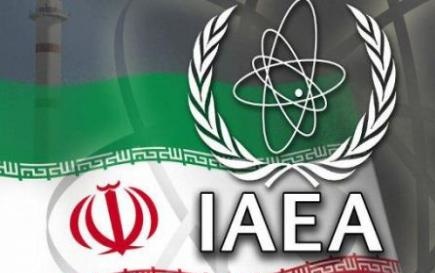Iran’s officials have complained over an international resolution calling for inspections of suspected nuclear sites.
Members of International Atomic Energy Agency adopted an Anglo-French-German resolution on Friday. The resolution backs up the IAEA’s request for access to two sites suspected of involvement in Iran’s nuclear program, possibly for military purposes, in the early 21st century.
Tehran has refused the inspections, while claiming that it is willing to resolve any differences with the IAEA.
The resolution was passed 25-2, with only Russia and China objecting. Seven countries abstained.
Kazem Gharib Abadi, Iran’s permanent representative in Vienna, said:
Adoption of this resolution will neither encourage Iran to grant access to the Agency based on fabricated and unfounded allegations, nor will it force Iran to come down from its principal positions….
Considering the extensive level of constructive cooperation between Iran and the Agency and simply overlooking this level of cooperation, adoption of this resolution aimed at requesting Iran to cooperate with the Agency is deeply disappointing.
Iranian Foreign Minister Mohammad Javad Zarif denounced the UK, France, and Germany, accusing them of serving the Trump Administration and Israel:
E3 must stop public face-saving & muster the courage to state publicly what they admit privately: their failure to fulfill even own JCPOA duties due to total impotence in resisting US bullying
Behind facade, E3 are accessories to Trump & Netanyahu—& in no position to counsel Iran pic.twitter.com/sdoOBJECeS— Javad Zarif (@JZarif) June 19, 2020
The declaration appeared to close off the Rouhani Government’s hope of an economic link with Europe to bypass comprehensive sanctions imposed by the US in November 2018.
In January 2019, the European Union launched a financial mechanism, INSTEX, for trade in Iranian oil and other commodities and goods. Tehran rejected the arrangement because of EU conditions over Iran’s missile program, activities in the Middle East, and alleged involvement in assassination and bomb plots in Europe.
From June 2019, the Rouhani Government began suspending commitments under the 2015 nuclear deal, from which the Trump Administration withdrew in May 2018.
Iran broke the limit on stock of 3.67% uranium, raising enrichment from 3.67% to 4.5%, and installed advanced centrifuges.
Tehran’s envoy Abadi gave the “solemn advice” to the IAEA:
Do not pave the way for manipulation of issues for those with political agendas through taking positions and reporting hastily;.behave in a way not to be blamed for the obliteration of the last bastion of multilateralism in Vienna and the destruction of the JCPOA [nuclear deal].

